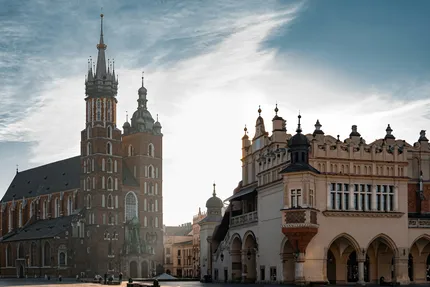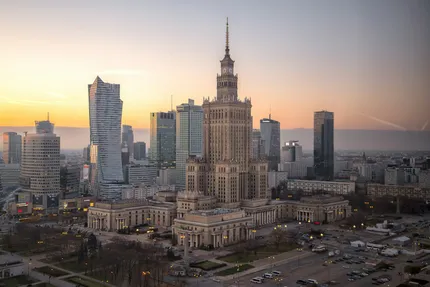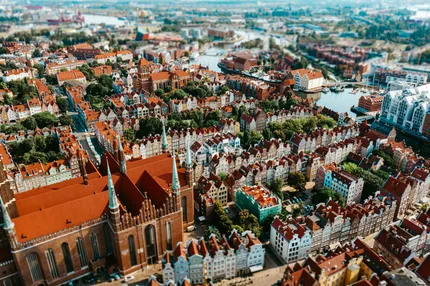CityTouring
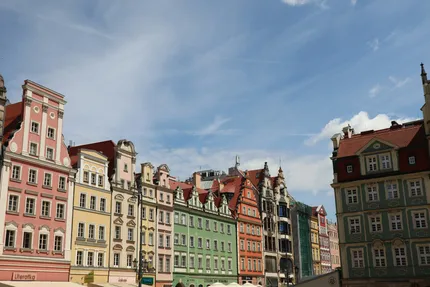
City trip to Wroclaw
PolandWroclaw, the captivating city in western Poland, stands as a vibrant blend of historical charm and modern energy. Known for its scenic Oder River and an abundance of picturesque bridges, Wroclaw is often dubbed the 'Venice of Poland.' The city's architectural beauty is displayed in its Gothic-style St. Elizabeth's Church, the grand Market Square, and Centennial Hall, a UNESCO World Heritage site.
Wroclaw is also distinguished by its cultural flair, with rich offerings in theaters, galleries, and music festivals, complemented by a lively student population that fuels its youthful vibes. Visitors are often amused by the hundreds of whimsical bronze dwarf statues scattered throughout the city, known as 'krasnale,' adding a playful element to its streets and engaging visitors of all ages.

Wrocław Market Square
Discover the vibrant heart of Wrocław with colorful architecture, bustling cafes, and the iconic Gothic-style Town Hall.
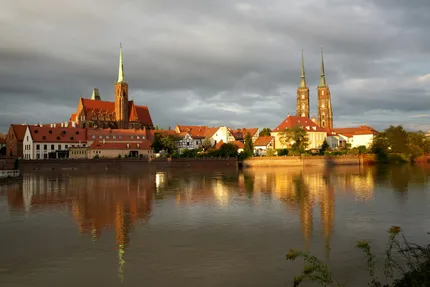
Ostrów Tumski
Stroll through Wrocław's oldest area, admiring stunning cathedrals and charming lamplighters illuminating gas lamps at sunset.
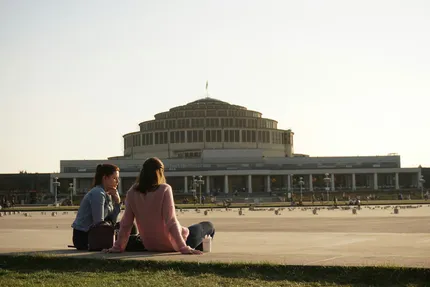
Centennial Hall
Visit this UNESCO World Heritage site, a significant example of early 20th-century architecture and a hub for cultural events.
Wroclaw is an excellent destination for travelers keen on exploring a city's cultural and historical facets. It offers a rich experience for architecture enthusiasts who will enjoy its mix of Gothic, Baroque, and modernist buildings. With its vibrant nightlife, numerous bars, and a young crowd, it is a great destination for young adults and students. Art lovers and culture seekers will appreciate the city's museums, theaters, and Wroclaw's Experimental Museum of Art, known as the 'Wroclaw Contemporary Museum.'
Families will find the city friendly and engaging, especially with attractions such as the Wroclaw Zoo and the interactive exhibits at the Hydropolis water knowledge center. Garden enthusiasts would enjoy the tranquil landscapes of the Botanical Gardens and the Japanese Garden. Overall, Wroclaw offers a lot for a city of its size.
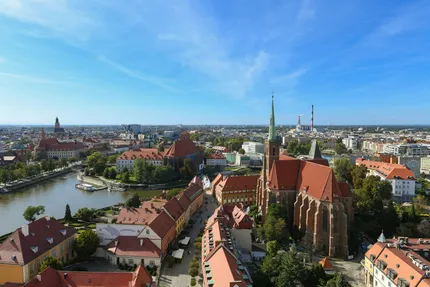
Best time to visit Wroclaw
The ideal time to visit Wroclaw is from late spring to early autumn, particularly between May and September. During these months, the weather is pleasant and outdoor events, festivals, and riverbank activities can be fully enjoyed.
More activities and things to see in Wroclaw:
Racławice Panorama
Experience the monumental 19th-century panoramic painting depicting the Battle of Racławice, showcasing Polish military history.
Hydropolis
Explore a unique water-themed science center offering interactive exhibits, multimedia installations, and engaging educational experiences.
Wrocław University
Tour the historic campus to admire its baroque architecture and the impressive Aula Leopoldina ceremonial hall.
Japanese Garden
Relax in this serene garden displaying traditional Japanese landscaping, located near the Centennial Hall complex.
Wrocław Zoo
Discover one of Poland’s oldest and largest zoos, featuring an impressive Afrykarium and diverse animal species.
National Museum
Browse extensive collections of Polish modern art, historical artifacts, and renowned Silesian paintings.
Getting around in Wroclaw
Wroclaw is a very pedestrian-friendly city, with a compact and accessible city center that can easily be explored on foot. For those who prefer cycling, there are dedicated bike paths and bike-sharing services available, making it a convenient alternative. The city's public transport system is efficient, primarily consisting of trams and buses. Tickets are affordable and can be bought at kiosks, through mobile apps, or from ticket machines at major stops. While the public transport stops quite often cover the essential areas, if you plan to travel to outer regions or the countryside, having a car might offer more flexibility. Parking can sometimes be challenging in busy areas, so using public transport or walking might be more practical in the city center.
Getting to Wroclaw
Wroclaw is served by Copernicus Airport Wroclaw, located about 10 kilometers from the city center. This international airport offers flights to many major European destinations, making it relatively easy to reach the city from various parts of Europe. There are direct flights from cities like London, Frankfurt, and Munich, providing good international connectivity. For those preferring rail travel, Wroclaw is well-connected by train, with Wroclaw Main Station being a key railway hub. There are frequent domestic trains and some international ones, with connections from cities like Berlin and Prague. Long-distance buses also serve Wroclaw, with companies like FlixBus operating routes that connect the city to various European locations, further enhancing its accessibility by road.
